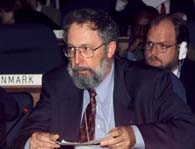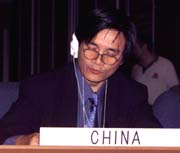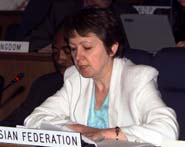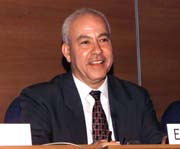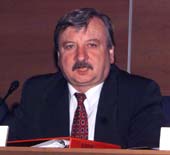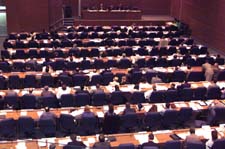| The fourth session of the Subsidiary Body for Scientific,
Technical and Technological Advice (SBSTTA-4) to the Convention on Biological Diversity (CBD) met in Montreal,
Canada, from 21-25 June 1999. The first Intersessional meeting on the Operations of
the Convention (ISOC) convened in Montreal from 28-30 June 1999.
SBSTTA-4 delegates met in two working groups. The first considered
developing a work programme on dryland ecosystems, principles for
the prevention of impacts of alien species, and further advancement of the Global Taxonomy Initiative. Working Group II
discussed: new plant technology for the control of plant gene expression; sustainable use of biological resources, including
tourism; and incorporation of biological diversity considerations
into environmental impact assessments. Delegates also discussed the SBSTTA work programme, cooperation with other bodies and
progress on thematic areas. They considered the terms of reference
of ad hoc technical expert groups, but deferred making a decision
to SBSTTA-5.
ISOC was convened based on COP-4 Decision IV/16, which called for
an open-ended meeting to consider possible arrangements to improve preparations for and conduct of the meetings of the Conference of
the Parties (COP). ISOC also held preparatory discussions on the COP-5 agenda item on access to genetic resources and benefit
sharing, focusing on the upcoming Experts Panel on Access and Benefit Sharing, which will meet in October 1999 in Costa Rica, ex
situ collections that were acquired prior to the Convention's entry into force and the relationship between intellectual
property rights and the relevant provisions of the Agreement on Trade-Related Aspects of Intellectual Property Rights and the
CBD.
Most delegates were pleased with the progress made during the two
meetings, highlighting decisions to improve the scientific input
prior to SBSTTA meetings and the sound basis provided for COP-5
discussions on operations of the Convention. Discussions over genetic
use restriction technologies (GURTs), a possible new subsidiary body
on implementation and retroactive application of the Convention on ex
situ collections evoked the greatest amount of contention among
delegates. Most delegates agreed that the most important step remains
COP-5 action to implement and further clarify the intersessional
decisions.
|

